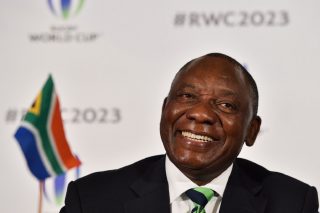Corruption has been an age-long problem and a major cause of underdevelopment in most African societies, despite commendable policies employed for smooth governance. Embezzlement of public funds is a common occurrence in sub-Saharan Africa, costing the region billions of dollars annually. Asides from stalling the growth of the continent, it has also cast a shadow on other deadlier forms of corruption like the mismanagement of public entities.
“The abuse of public office for private gain erodes people’s trust in government and institutions, makes public policies less effective and fair, and siphons taxpayers’ money away from schools, roads, and hospitals,” a 2019 United Nations report reads. The statement paints a typical economic setting of sub-Saharan Africa, where high-level corruption has crippled economies, public assets, and caused many to lose confidence in the government. But a recent event indicates that South Africa is taking the bull by the horn.
On September 26, 2020, President Cyril Ramaphosa made bold moves to reprimand the country’s Defense Minister, Nosiviwe Mapisa-Nqakula and docked her to pay for three months for taking a delegation to Harare on an Air Force plane. This came after the opposition, Democratic Alliance (DA), had sounded an alarm on the minister’s misuse of state resources by allowing the delegates of the ruling party, African National Congress (ANC), to travel with her.
Ramaphosa classified her decision to let the delegation – who were travelling to Zimbabwe on unrelated business – join her on the flight as an “error of judgment.” Therefore, Mapisa-Nqakula was issued a formal reprimand, an imposed three-month “salary sacrifice” from November 1st, and a duty to ensure that the ANC delegates reimbursed the state for the costs of the flight. This commendable step would not only put public officers in check, it would also stir up an air of accountability within the government and curb the abuse of public propriety.
It is estimated that as of 2002, corruption cost the continent roughly $150 billion a year. According to a 2019 estimate by Transparency International, Africa is the world’s second-fastest-growing region, yet 100 million more Africans live in extreme poverty today compared to the 1990s. To reverse the negatives of these statistics, more African leaders should take a queue from Ramaphosa and become more intentional in their fight against corruption, especially in its obscure forms.








